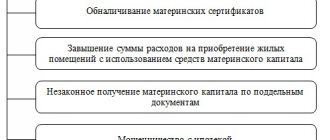Recently, cases of theft of funds from a card as a result of various fraudulent actions, its loss, gullibility and inattention of the owner have become significantly more frequent. This is due to the prevalence of non-cash payment instruments, the development of technologies (including fraudulent ones), and the imperfection of domestic legislation. According to statistics, at least one Russian a day becomes a victim of cybercriminals. What to do if money is stolen from your card? Is it possible to return stolen funds? We will talk about this in this article.
Who will the bank return the money to?
Let us immediately make a reservation that there is a certain mechanism of action when fraudulent transactions are detected. A person who has become a victim of attackers must strictly adhere to these rules. Otherwise, by law, the bank may refuse to fulfill its obligations. So, you can return the missing money if two conditions are simultaneously met:
- The holder strictly followed the rules for using the card and did not violate the recommended security requirements: did not transfer the plastic card to third parties, did not disclose the PIN code to anyone.
- The client notified the bank about the unauthorized transaction(s) no later than within 24 hours after they were completed. This can be done by calling the bank's hotline, as well as directly contacting the branch where the card was issued.
It would be a good idea to contact the police regarding fraud and/or theft. Although this requirement is not reflected in the law, in practice this is exactly the case: many banks try to avoid payments, returning funds to the client, if there is no constant pressure from law enforcement agencies and the press.
Also, if money disappears from the card, you should be prepared for the fact that you will have to prove that you did not violate security rules and did not transfer the PIN code and card to unauthorized persons.
But not only the client has obligations to the bank. According to the law, the bank is obliged to notify the card holder of all transactions on it. The method of notification is specified in the contract for the provision of services, so it would be a good idea to clarify it. Typically these are SMS messages or emails. If the money was written off as a result of fraudulent actions, and the bank did not report the transaction, then you have the right to demand reimbursement of the written-off amount in full.
What punishment and responsibility are provided?
The bank is not responsible for the actions of fraudsters. Employees have access to only part of the confidential information, and the client owns the rest of the data, so he is responsible for the result of the disclosure of secret information.
Theft of money from a card falls under Art. 158 of the Criminal Code of the Russian Federation. A citizen may find out that the money was withdrawn by a thief some time after the crime has been committed. The penalty depends on the amount of damage caused by the theft:
- fine;
- forced compensation for damage;
- deprivation of liberty.
If a credit card is stolen, a mandatory check is required. Art. 144 of the Code of Criminal Procedure of the Russian Federation requires the institution to compensate the client for the lost amount if an audit shows that theft occurred.
How are funds stolen?
The list of fraudulent ways to steal money is not that long. Therefore, plastic owners should be aware of how funds are usually stolen. One of the most common is the psychological method of fraud. Attackers gain a person's trust by posing as employees of a bank or other organizations and obtain confidential information necessary to complete a transaction: PIN code, one-time transaction code, passport data. There is no need to even use any special technical means.
The second popular method is to copy data from the magnetic stripe of the card. For this purpose, special compact devices are used - skimmers. They are used when the owner of the plastic transfers it to a third party, for example, to a waiter in a restaurant. Also, devices can be a whole complex of a card holder and a keyboard overlay or a miniature camera that are installed on ATMs and terminals. Fraudsters make skimmers as similar as possible to ATM parts and attach them with double-sided tape.
It is worth mentioning fraud with contactless payment methods. From a card equipped with an RFID chip, funds can be debited automatically as soon as it is within the coverage area of the POS terminal. Data is exchanged between devices, and funds are debited from the account. If the transaction amount is less than 1000 rubles, transaction confirmation is not required. This is the basis of fraud, when an attacker uses high-power terminals capable of contacting radio tags at a distance of several tens of centimeters.
? Submit a loan application and take your million
Another method of scam begins with advertising on entertainment sites and social networks. To get a loan on favorable terms , you need to fill out a form indicating your card details.
Fraudsters explain: this is the only way to check your credit history and provide a loan. The more information you give, the higher the likelihood of receiving money.
Legislative aspects
Not everyone and not always succeeds in returning funds stolen from a card. This is due to the fact that, according to the law, a transaction in which payment details were used and the correct PIN code was entered is not considered unauthorized. For the bank’s system, such an operation looks completely legal, no matter what the owner of the plastic says.
If you have lost your card or it has been stolen from you, block it immediately, otherwise the bank will regard all transactions as legal. The same applies to card cloning fraud. Therefore, if you have the slightest suspicion that the ATM may be equipped with spyware, do not use it. Otherwise, it will be almost impossible to prove that you are right, and the stolen funds can only be reclaimed from the scammers themselves.
? I receive a message about winning money
The bank held a lottery, and your card number turned out to be lucky. Or you won a-a-a-car *in Yakubovich’s voice*.
In fact, the reason could be anything: the mayor of Moscow is distributing medicines at a discount to pensioners, social security collects lists to provide financial assistance, utility companies want to return the money as a subsidy, and so on.
All that remains is to provide your card details.
All this is a scam of gullible pensioners. It’s time to publish descriptions of such schemes in newspapers.
What to do if money is stolen from your card?
In case of fraud, you must act quickly and strictly according to the law. The bank cannot cancel unauthorized card transactions after they have been completed. But the faster you react to fraud and take appropriate action, the higher the likelihood that the money will be returned.
The order is as follows:
- Call the hotline (support service) of the banking organization and report unauthorized transactions. It is also recommended to immediately block the card so that attackers cannot repeat the payment, transfer or cash withdrawal.
- Contact the bank branch where the card was issued and write a claim to protest the unauthorized transaction. Some banking organizations accept applications by telephone or online. But it is still better to make a personal visit. The claim form for each bank may be different (an employee of the organization will help you with this). The claim should be written in duplicate (or a copy made) so that the bank employee who accepted your application can certify your copy, since it may be useful in court. We remind you that you must write a claim no later than 24 hours after the fraudulent transaction.
- Change passwords in online banking, phone, email and social networks. Since today most applications are linked to email and/or phone, attackers can gain access to your personal data by taking possession of your email or account password on VK, Facebook, Twitter. Therefore, it is better to play it safe.
- Contact law enforcement. Failure to report to the police, if you decide to limit yourself to only contacting the bank, may be interpreted by the court not in your favor. Tell the police in as much detail as possible about the circumstances of the incident. If possible, immediately provide evidence that the fraud was not due to your carelessness.
- Wait for the results of the investigation and the bank's decision. According to the law, citizens' appeals must be considered by a banking organization within 30 days. The deadline for refunding money is not established by law. If there is undeniable evidence of the bank's guilt, the money can be returned within a few days. Sometimes clients have to wait much longer for justice: for several months or even years. That is why it is recommended to contact not only the bank, but also the police, so that work can be carried out simultaneously in several directions.
Of course, banks do not want to lose money, and therefore cases of fraudulent debiting of funds from a card are not always resolved in favor of the client. But large organizations value their reputation, especially when it comes to privileged holders. So in each specific case the outcome of the appeal may be different.
? You are offered to connect an overdraft
Fraudsters hack the account of a bank group administrator on a social network and/or write on his behalf.
For example, you want to activate an overdraft. Under this pretext, a bank representative contacts you and lures you with card information. Then he steals the money.
Remember: bank representatives will NEVER solve your problems on social networks. Unless they ask how to contact you. Further, all contacts with them must be carried out either through the bank’s application or via a confirmed phone number of the financial institution.
Why can a bank refuse to satisfy a client’s requirements?
This happens most often for one reason - the client violated the recommended rules for safe use of the card: he handed it over to the wrong hands, told someone the PIN code, did not notify the bank about the loss of the card, etc. Banks most often try to prove the guilt of the victim himself. Therefore, it is recommended to strictly follow the rules of use and be prepared to go to court and provide evidence of your innocence.
The second common reason for refusal is violation of deadlines for processing due to missing money. Let us remind you that it is no more than 24 hours from the moment of the unauthorized transaction.
Another point worth considering in detail is when a bank card holder becomes a victim of telephone scammers who pretend to be bank employees. The agreement and rules for using the card stipulate that confidential data (PIN code, login and password for logging into online banking, one-time codes for transactions) cannot be transferred even to bank employees. If the funds are missing due to the fact that the client himself provided all the information, being deceived, the bank does not bear any responsibility for this. By law, you can only demand compensation for stolen funds from the fraudsters themselves after they are caught.
Probability of disclosure. Statistics
Commonplace: the detection rate of cyber crimes is low, the recovery of stolen goods is minimal
. But how much is this in numbers? It is not easy to find the necessary information in the data for 11 months of 2022 from the Ministry of Internal Affairs of the Russian Federation. During this period, 494,126 crimes were committed using IT tools, an increase over the year of 7.1%. 120,586 solved, that is, only one crime out of five. Previously it was even less (40.6%).
But on another page there are different numbers. 419,314 IT crimes have already been registered here, 94,978 have been solved (also not much - 24.1%). This figure seems objective to me: the chances that the criminals will be detected are approximately 1 in 4.
Source: MIA.rf
If an attentive reader reaches page 30, he will discover the number of thefts using cards. In 11 months 2021 there were 154473 of them!
It is not entirely clear from the table how they are calculated. But one thing is clear: everyone can add to their statistics.
Source: MIA.rf
And finally: there are regions where such atrocities are revealed more often:
And vice versa:
How to prevent fraudsters from stealing money from bank cards?
Of course, all of the above actions in the event of theft of funds from a card are mandatory and, as practice shows, quite effective, but you should not count on one hundred percent leniency of the bank. It is recommended to be attentive and careful to prevent loss of funds. In half of the cases of card fraud, the main fault lies with the owner of the plastic card.
Safety regulations:
- Do not tell anyone your card PIN code, login and password for logging into Internet banking, as well as personal data of email and pages on social networks. Remember that even bank employees never ask clients for passwords and PIN codes.
- Do not write down PIN codes in your phone or on paper, do not store them in your wallet along with cards, because if you lose your bag, you will not only lose your plastic card, but also provide all the codes for it to the person who found it.
- Do not give cards to third parties (sellers, waiters and other service personnel in establishments).
- Use an antivirus and firewall on your computer, smartphone and other gadgets from which you use online banking. Use strong encryption mechanisms and security methods that cannot be exploited by an attacker. For example, use a fingerprint or Face ID authentication instead of a regular PIN or pattern.
- When using your card in a store or when withdrawing money from it at an ATM, enter your PIN so that it cannot be seen by others.
- Pay attention to the terminals and ATMs you use. Today, the method of fraud by cloning bank cards is becoming more and more common. Reading equipment (unobtrusive keyboard overlays, readers and cameras) is installed on ATMs.
- Do not make purchases in suspicious online stores, do not enter payment details on sites that you cannot completely trust. To make online purchases, it is recommended to use virtual cards that can be topped up with the amount of one payment.
- Set limits on non-cash transactions, payments and withdrawals.
- Connect SMS notifications about all card transactions so as not to miss unauthorized transactions.
- Try to minimize card transactions by using alternative payment systems, for example, through a smartphone. Due to their features, they are better protected from fraud, especially if the gadget has a fingerprint sensor.
Remember that no security tool provides an absolute guarantee of protection. If there are large funds on the card, it is better to take extra insurance. Today, many banks offer a bank card insurance service, which provides for the return of funds within the insurance limit (set at the conclusion of the agreement) if the money was stolen due to loss, theft, robbery, etc. Having insurance, it is quite simple to compensate for stolen funds in full or at least partially. However, banks set restrictions on the number of compensation payments, which should not be more than three during the insurance period. So caution in this case will not be superfluous.
Another reliable way to protect non-cash payment instruments is special shielded wallets, wallets and holders. These devices are relevant primarily for contactless cards, from which you can write off money using powerful POS terminals or steal data using grabbers. Inside the secure wallets there is a shielding material that works on the principle of a Michael Faraday cage, which shields radio signals and prevents interaction with the RFID module.
An assortment of such protective accessories is available on the Optex website. We offer options for women, men, youth, tourists, stylish gifts. Our products are not only stylish, beautiful and relevant, but also guaranteed to protect the safety of data.
FAQ
How can you understand that money was written off from your card by fraudsters and not by someone else legally?
Open your personal bank account. View all expense transactions on the account. If you do not have access to your personal account, go to the bank office and order a statement. Study all the payment purposes, from them you will understand what the payment was made for. Find information about the recipient of the money; information about him is also reflected in the statement.
How to protect confidential information from a waiter, cashier or administrator when confirming payment?
Don't let your card out of your sight. When entering your PIN, cover it with your other hand. Make sure that unauthorized persons do not hold your card in their hands or take photographs of it. When entering a PIN pod, use several fingers rather than one, this will disorient the observer. If you are sure that the card data is compromised, block the card and order a new one.
How much time do I have to notify the bank about suspicious transactions on my card?
The sooner you notify the bank, the better. Most banks set a period of 1 day from the date of the transaction. If more time has passed, it may be too late and the bank employees will no longer be able to help.
How can I understand that they are not calling me from the bank if the phone number is a bank one?
Bank employees never, under any circumstances, ask for codes - PIN code, CVV, CVC, passwords for your personal online banking account, mobile application, as well as damage codes from SMS. If you are interested in at least one of these parameters, you are communicating with scammers.
Can the bank help me if I transferred money to the scammers myself?
No, banks will not be able to help those clients who, of their “own” will, transferred money to criminals. This type of question should be addressed to the police. But even if such a situation has already occurred, block the card whose data has become known to fraudsters so that the situation does not happen again.
Sources:
- Law of the Russian Federation dated 02/07/1992 No. 2300-1 “On the protection of consumer rights
- Civil Code of the Russian Federation Art. 395. Liability for failure to fulfill a monetary obligation
- Federal Law “On Enforcement Proceedings” dated October 2, 2007 No. 229-FZ (latest edition)
- Code of Administrative Offenses of the Russian Federation Article 17.14. Violation of legislation on enforcement proceedings
about the author
Klavdiya Treskova is an expert in the field of financial literacy and investment. Higher education in economics. More than 15 years of experience in banking. He regularly improves his qualifications and takes courses in finance and investments, which is confirmed by certificates from the Bank of Russia, the Association for the Development of Financial Literacy, Netology and other educational platforms. Collaborates with Sravni.ru, Tinkoff Investments, GPB Investments and other financial publications. [email protected]
Is this article useful? Not really
Help us find out how much this article helped you. If something is missing or the information is not accurate, please report it below in the comments or write to us by email
? You are simply asked to give a call
In this scheme, victims are most often found on classified ads websites. The potential buyer offers to meet, and may even offer to save money on gas so as not to have to drive across town.
You agree, a couple hundred is never too much. Money is coming.
At the appointed time, the buyer drives up, inspects the car, and in the process his phone goes dead. Asks your smartphone to call. And at the same time, his accomplice begins to ask questions to distract him.
While you are answering them, the attacker takes out the SIM card from your smartphone and replaces it with his own. After this, the buyers promise to think about it and leave.
But in reality, they insert a SIM card into your smartphone, recover your online banking password, and clean out your account.
By the way, they may try to transfer money by message from your phone. It's even easier and faster.
? You are offered to pay for your purchases in exchange for cash
This scheme is periodically rolled out in different supermarkets. In line, a girl comes up to you and asks whether you will pay in cash or by card.
If you answer that you will pay in cash, she offers to pay for your purchases with a card , so that in return they will give her bills. There seems to be a problem with the card: you can pay, but you can’t withdraw from an ATM.
You find cash, she pays for your purchases, the cashier issues a receipt, the girl leaves.
At this moment, the real owner of the card appears. He says that he just dropped his card in the supermarket, and a few minutes later he received an SMS about a charge at the checkout.
That means you stole his card since you just used it to pay. Return the money, or have the cashier cancel the payment, otherwise the police will be called .
Many people fall into a stupor in such a situation. Moreover, if there is a security guard nearby who does not need unnecessary problems at work.
In vain, call the police. The fraudster will disappear into thin air instantly. Naturally, he and the girl are in cahoots.
And, most likely, this is simply cashing out money from stolen cards . At the ATM they will detect it right away, but in the store they will write it off as problems with the card if it suddenly doesn’t work.
? You are offered to speed up a stuck translation
The fraudster, who received your card details in a correspondence on an advertisement site, says that he will pay as a legal entity / from a card of another bank. Because of this, the money will not come immediately.
Want faster? Go to an ATM or terminal and create a template indicating your own card and phone number.
Many terminals are designed in such a way that after creating a template, they show a window with a “Connect mobile bank” button. The attacker says that you need to click on this button and enter his number. Like, then his bank will connect and quickly process the payment.
But in fact, you are linking the card to his number . And you give him the opportunity to withdraw funds from your account.






